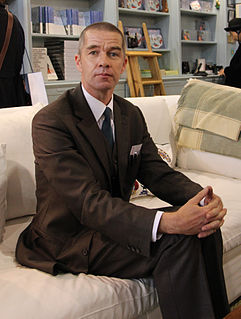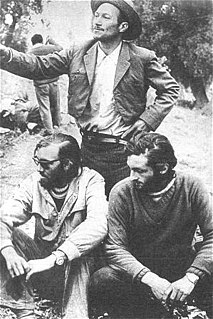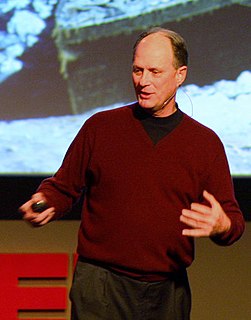A Quote by Genesis P-Orridge
Once you're looking for wisdom, you have to look at why things happen and why people behave how they do: you cannot, in all conscience, accept any form of prejudice.
Related Quotes
When you have children your own hypocrisy becomes more apparent because you're telling them how to behave, and you're not behaving like that yourself. So it obliges one to really go in and try to look at why there is a huge gulf between how one knows one wants to behave and how one actually does behave.
A social order bent on producing wealth as an end in itself cannot avoid the creation of a people whose souls are superficial and whose daily life is captured by sentimentalities. They will ask questions like “why does a good God let bad things happen to good people ” such people cannot imagine that a people once existed who produced and sang the psalms. If we learn to say “God ” we will do so with the prayer “My God my God why have you forsaken me?
My father once told me that a happy ending is just the place where you choose to stop telling the story. So this is where I choose to stop. More things are still going to happen, of course, some good, some bad. Some things never get any better. When people die they stay dead. None of us knows why we love, or why we stop loving, or why everyone we love we lose.
Science tries to answer the question: "How?" How do cells act in the body? How do you design an airplane that will fly faster thansound? How is a molecule of insulin constructed? Religion, by contrast, tries to answer the question: "Why?" Why was man created? Why ought I to tell the truth? Why must there be sorrow or pain or death? Science attempts to analyze how things and people and animals behave; it has no concern whether this behavior is good or bad, is purposeful or not. But religion is precisely the quest for such answers: whether an act is right or wrong, good or bad, and why.
I think now that I'm in the autumn of my life, and I'm getting a chance of having an overview and looking at the shape of how things happen, when things happen, why things happen, I think it was fitting that I spent most of my early career doing mask work, because I just don't think I was that comfortable in my own skin.
In the final exam in the Chaucer course we were asked why he used certain verbal devices, certain adjectives, why he had certain characters behave in certain ways. And I wrote, 'I don't think Chaucer had any idea why he did any of these things. That isn't the way people write.' I believe this as strongly now as I did then. Most of what is best in writing isn't done deliberately.
I think life is simpler than we tend to think. We look for answers and more answers. But there are no answers. Things happen in life, good things and bad. People say, 'Why did it happen to me?' Well, why not? Some people win the lottery, and others die in a car crash. It happens, and there is nothing we can do about it. The universe doesn't care what happens to you.
If atoms do, by chance, happen to combine themselves into so many shapes, why have they never combined together to form a house or a slipper? By the same token, why do we not believe that if innumerable letters of the Greek alphabet were poured all over the market-place they would eventually happen to form the text of the Iliad?



































